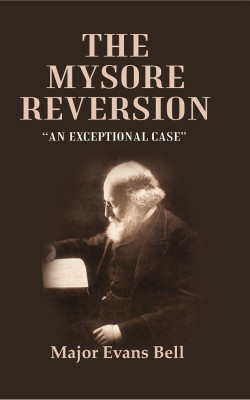The Mysore Reversion: ŌĆ£An Exceptional CaseŌĆØ(Paperback, Major Evans Bell)
Quick Overview
Product Price Comparison
About The Book: This argument appears to me not only to be devoid of all moral principle, but to be directly opposed to sound political science.The real political danger in India is not what it has been recently represented. The danger is not that the Viceroy's authority will be despised, but the Queen's. There is no danger that the tributary and protected Princes and their Ministers and adherents will learn to look for orders to London instead of Calcutta in ordinary matters. The danger is that if in their extraordinary emergencies an appeal to Great Britain is found to be nugatory, they may say in their despair, " There is no Imperial Power ; there is no Parliament ; there is no Sovereign over us ; there is only a Collector." I shall endeavour to prove, that although the expected Mysore Eeversion is not by any means "an Exceptional Case", in the sense of the official document which I quote, it is so far exceptional that the appropriation of this State would be exceptionally unjust, injurious, imprudent, and unprofitable. About The Author: Thomas Evans Bell (1825ŌĆō1887) was an English Indian army officer and writer. He used the pseudonyms Undecimus and Indicus (1865). The son of William Bell, he was educated in Wandsworth, London. In 1841 he went to Madras in the East India Company's service. He was a secularist and supporter of George Jacob Holyoake, who gave Bell's name in 1856 on a short list of those who had done most for the free-thought movement, and he had a share in Holyoake's "British Secular Institute of Secularism and Propagandism". In 1851 he spoke at the first Free Discussion Festival, at the City Road Hall of Science. He was also one of John Chapman's authors. Bell was strongly critical of the East India Company, and its impact on peasant proprietorship in India.


